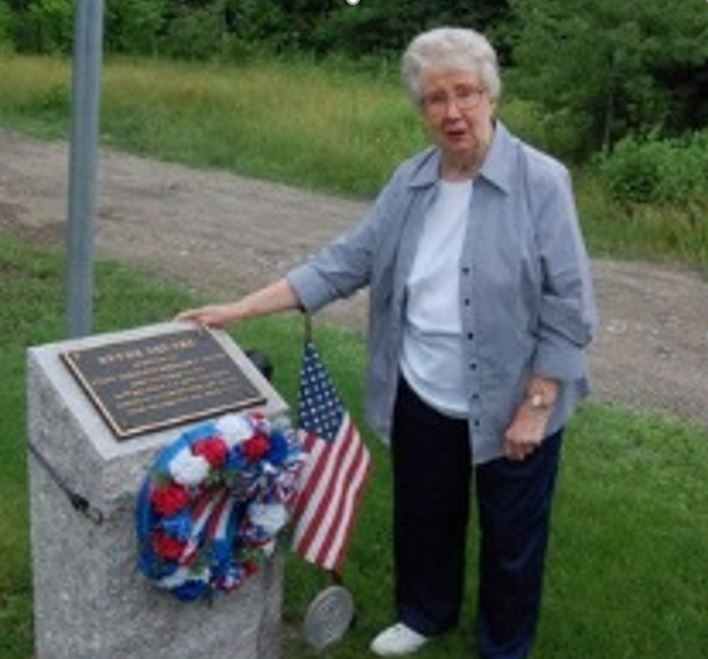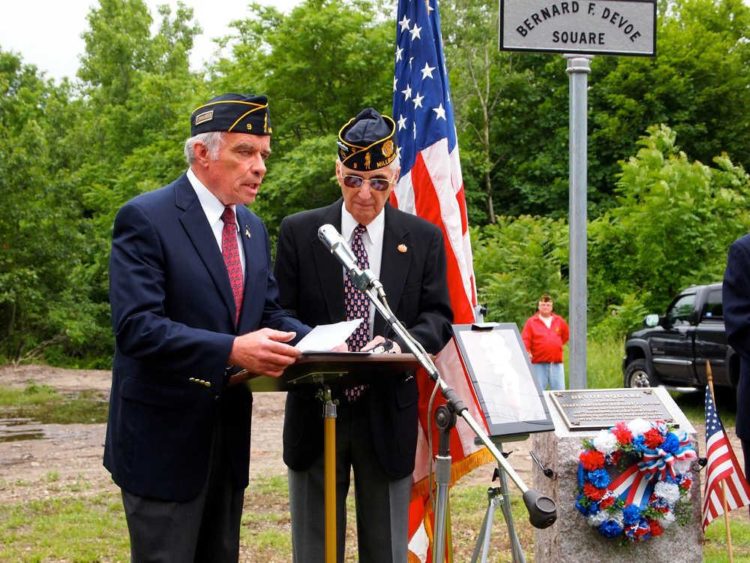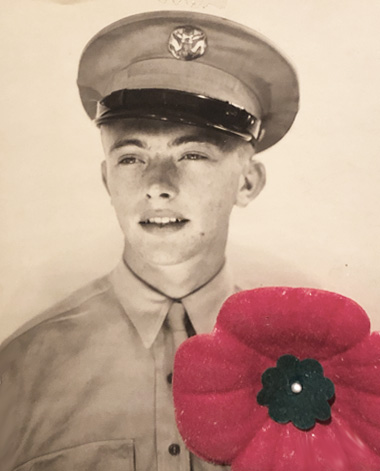A Town Pays Homage to its Fallen
Devoe’s B-17 went down in the Adriatic Sea off of Italy after catching fire during a mission. The crew bailed out but was never found.
During the monument’s dedication, I was asked to read the circumstances surrounding SSG Devoe’s B-17 plane nicknamed, “Blow It Out Your (backside)!” (Back then the Army was quite liberal with allowing the crews to name their planes and the nose art of those aircraft was often quite artistic.)
The passage I read was highlighted in the Worcester Telegram in their story on the dedication,
“‘Between 1942 and 1945, the United States lost 23,000 planes in combat. It was a living hell for those guys who did that,’ Mr. Balestrieri said. ‘If you survived 25 missions, you got to go home. Nobody did that.’
He reported from the log of another member of the 429th Squadron, who participated in Mr. Devoe’s mission, that after striking targets north of Munich, the flak-riddled plane caught fire over the Adriatic Sea near Italy. ‘It looked like the windows had frozen over,’ the observer wrote. ‘About a minute later I saw flames shooting out of the side windows.’ The aircraft went into a spin and eight parachutes were seen. No one survived.
The official U.S. Army report stated that on February 22, 1944, the crew of the B-17 #42-38134 “Blow it Out Your… !” [was lost] during a mission to Olching, Germany. They had some mechanical problems and then a fire started on board, forcing the crew to ditch over the Adriatic Sea. There were no survivors and they are considered missing in action.
Mrs. Cambridge had supplied the town with much of the personal information about Devoe that was used in his Memorial Service.”
A Miraculous Coincidence
However, the chilling part of the Devoe story takes place nearly 30 years later. In 1973, Cambridge and her husband were vacationing in Italy and Yugoslavia on the Adriatic Sea. On their last morning there she went for an early morning swim. As she was exiting the water, she stepped on something metal that cut her foot: a piece of metal attached to a chain. “I knew that it was a dog tag,” she said, “but because of the rust, it was unreadable.”
She asked the hotel concierge if he could clean it up. “I kept telling myself that hundreds of boys must have died in that sea, but something was feeling eerie.”
The concierge returned later on the deck with the dog tag now legible. On it was written “Bernard Devoe.”
“I must have turned very pale,” she said. “The concierge asked me if I wanted a glass of water.”
“I don’t remember how long I sat there,” she said, “but I held in my hand Bernard Devoe’s dog tags. Just enough of the dog tags were visible to read his name and serial number. It took me back to those days and that’s when I knew I had to write the book.”
On the day after her appearance with the Historical Society, Cambridge finally visited the monument for Devoe across the street from where he had grown up and she invited me along. She welled up with tears at seeing her friend’s monument and his former house across the street.

“Deev was such a wonderful boy,” she said. “I can’t thank the town enough for doing this after all these years, and I am so sorry I missed the dedication.” She kept the dog tags in a jewelry box in her home.
Looking across the street she pointed at the porch of the former Devoe household. “We had such wonderful, fun times there. They were such a wonderful family. The days after Deev died we all spent a lot of time there with his parents.”
Cambridge worked in the hospitality industry until she was 85. She lived in Hampton, NH until her own death a few years ago well into her 90s. If you are interested, you can purchase Mrs. Cambridge’s book here.
Thanks to the Millbury Historical Society, notably Sharon Anderson and Frank Gagliardi, for maintaining the history of the Town as well as this miraculous story.











COMMENTS